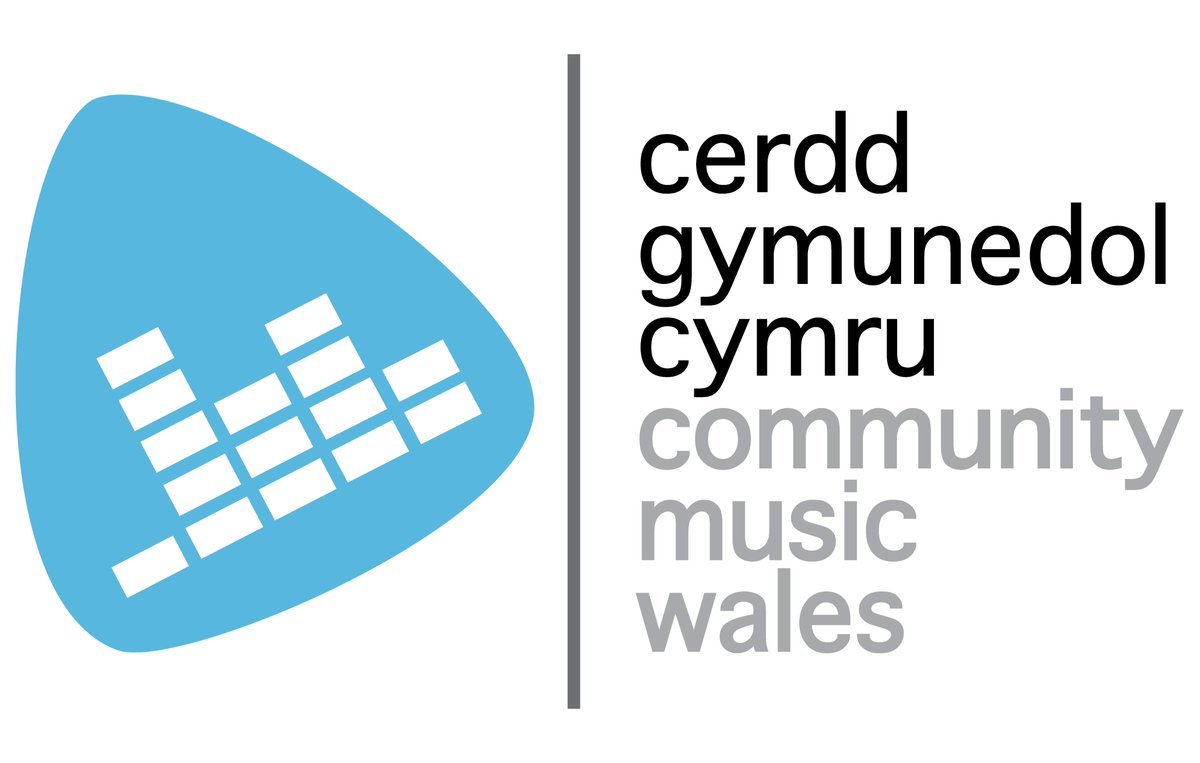Cornerstones Foundation | Lewys Siencyn
….Find out more about Lewys’ brilliant project, TRADD-OD: Old Stories – New Sounds here
Can you tell us a little more about you and your background in community music before entering onto the Cornerstones Foundation programme?
Prior to joining Community Music Wales on the Cornerstones Foundation programme, I had very little tutoring and workshop leading experience. That said, for several years I have been a voluntary member of the Sesiwn Fawr Dolgellau marketing and locations subcommittees and have had substantial involvement in the festival’s yearly preparation, which has proved useful during the planning process for my project for Community Music Wales. I joined the team from an artist and composer’s perspective predominantly, with intentions to learn about and develop the skills needed to expand my repertoire as a freelance musician and gain an insight into the workings of a musical education I certainly benefitted from at a young age.
Can you give us an elevator pitch of what your project was all about?
Tradd-OD was a two-day recording, sampling, and sound design workshop organised in collaboration with the Mycelium Storytelling Hub and Ty Siamas, Dolgellau. It aimed to guide a small group of locals on an otherworldly journey, from the winding streets of Dolgellau to the impressive silhouette of Cader Idris, to create a unique sonic portrayal of a local Dolgellau legend: ‘Merch y Talglyn’, using experimental sampling and electronic music techniques. The project was delivered by storyteller Mair Tomos Ifans and sound experimentalist Glyn ‘FFRWD’ Roberts, each with decades of tutoring and industry experience.
Day one involved a storytelling and contextualising session with Mair, before moving on to practical, hands-on, recording and engineering sessions with Glyn, which involved recording traditional folk instruments, voice, and using field recorders to capture the sounds of the town. Having collected and packaged the previous day’s recordings, day two gave participants the chance to use recording softwares and Glyn’s impressive modular synths to morph and manipulate samples, bringing the transformed sounds together at the end of the day to create a cohesive (and terrifying!) soundscape which took listeners through the story.
Leading on a project comes with many challenges, what for you was the biggest challenge you had to face to ensure your project met its aims.
I found it particularly difficult during the planning stages to separate the process from the end product, something which may have stemmed from my inexperience in community music practice prior to my position with Community Music Wales. I found it difficult not to worry about the quality of the end product and was in danger of neglecting the real aims of this project: to bring creative and engaging musical workshops to a town currently experiencing a distinct lack in formal musical education.
What was the most satisfying aspect of producing a successful project?
It was great to see a good, manageable turnout of participants take part on both days, despite my initial concerns regarding signups. To my relief, the demand for the workshop rose significantly the week leading up to the project, resulting in a total of ten participants getting involved on either the first or the second day, smashing the target of six to eight put forward initially.
What would you change if you had a chance to go back and do your project over again?
A project as technically challenging as this could have done with an extra couple of days during which tutors could ease participants into the process a little more comfortably; myself and Glyn realised quite soon into the second day that the jump in difficulty and skill level between the two days - for a project open to participants of all abilities - was slightly too big. A little more time (and perhaps budget!) would also allow for us to go ahead with the initial plan of incorporating elements of videography, graphic design, and even theatre into the final piece.
What piece of advice would you give someone looking to break into Community Music and Project Management?
Working for several years as an artist and performer within a very close-knit and community-driven Welsh language music industry allowed me to gradually build a network of creative freelancers, each with their own multitude of ongoing projects. I ended up stumbling across this position with Community Music Wales thanks to one of the contacts I’d made along the way, and although I had no experience of community music tutoring prior to this, my work with Sesiwn Fawr Dolgellau certainly propped up my application. My advice would be to keep building a network of contacts, and not to burn any bridges - you never know who your next collaborator will be!
..
Allwch chi ddweud ychydig mwy amdanoch chi a'ch cefndir ym maes cerddoriaeth gymunedol cyn i chi fod ar raglen Cornerstones Foundation?
Cyn ymuno â Cherdd Gymunedol Cymru ar raglen Cornerstones Foundation, ychydig iawn o diwtora a phrofiad o arwain gweithdai oedd gen i. Wedi dweud hynny, ers sawl blwyddyn rydw i wedi bod yn aelod gwirfoddol o is-bwyllgorau marchnata a lleoliadau Sesiwn Fawr Dolgellau ac wedi chwarae rhan sylweddol yng ngwaith paratoi blynyddol yr ŵyl, sydd wedi bod yn ddefnyddiol yn ystod y broses gynllunio ar gyfer fy mhrosiect ar gyfer Cerdd Gymunedol Cymru. Ymunais â'r tîm fel artist a chyfansoddwr yn bennaf, gyda’r bwriad o ddysgu am, a datblygu'r sgiliau sydd eu hangen i ehangu fy repertoire fel cerddor llawrydd a dysgu mwy am gefndir yr addysg gerddorol yr ydw i’n sicr wedi elwa arni ers pan oeddwn yn ifanc.
Allwch chi roi disgrifiad byr o hanfod eich prosiect?
Gweithdy recordio, samplu a dylunio sain dau ddiwrnod oedd Tradd-OD, a drefnwyd ar y cyd â Hwb ChwedleuaMyseliwm a Thŷ Siamas, Dolgellau. Y nod oedd tywys grŵp bach o bobl leol ar daith arallfydol, o strydoedd troellogDolgellau i silwét trawiadol Cader Idris, i greu portread sonig unigryw o chwedl leol ardal Dolgellau: 'Merch y Talglyn',gan ddefnyddio technegau samplu arbrofol a cherddoriaeth electronig. Cyflwynwyd y prosiect gan y cyfarwydd MairTomos Ifans a'r arbrofwr sain Glyn 'FFRWD' Roberts, pob un â degawdau o brofiad ym maes tiwtora a’r diwydiant.
Roedd y diwrnod cyntaf yn cynnwys sesiwn adrodd straeon a chyd-destunol yng nghwmni Mair, cyn symud ymlaen atsesiynau recordio a pheirianneg ymarferol gyda Glyn, a oedd yn cynnwys recordio offerynnau gwerin traddodiadol, llais, a defnyddio peiriannau recordio maes i gofnodi seiniau'r dref. Ar ôl casglu a phecynnu recordiadau'r diwrnod cynt, yn ystod yr ail ddiwrnod roedd y cyfranogwyr yn cael cyfle i ddefnyddio meddalwedd recordio a syntheseisyddionmodiwlaidd trawiadol Glyn i drawsffurfio a thrin samplau, gan ddod â'r seiniau wedi'u trawsnewid at ei gilydd ar ddiwedd y dydd i greu seinwedd cydlynus (a dychrynllyd!) oedd yn arwain y gwrandawyr drwy'r stori
Mae arwain prosiect yn dod â sawl her. I chi beth oedd yr her fwyaf y bu'n rhaid i chi ei hwynebu i sicrhau bodeich prosiect yn cyrraedd ei nod.
Yn ystod y camau cynllunio, roeddwn i'n ei chael hi'n hynod o anodd gwahanu'r broses oddi wrth y cynnyrch terfynol,rhywbeth a allai fod wedi deillio o'm diffyg profiad ym maes cerddoriaeth gymunedol cyn fy swydd gyda CherddGymunedol Cymru. Roeddwn i'n ei chael hi'n anodd peidio â phoeni am ansawdd y cynnyrch terfynol ac roeddwn mewnperygl o esgeuluso gwir nodau'r prosiect hwn: dod â gweithdai cerddorol creadigol ac atyniadol i dref lle ceir diffyg addysg gerddorol ffurfiol amlwg ar hyn o bryd.
Wrth gynhyrchu prosiect llwyddiannus, beth oedd yr agwedd oedd yn rhoi’r boddhad mwyaf?
Roedd yn ardderchog gweld nifer dda o gyfranogwyr yn cymryd rhan ar y ddau ddiwrnod, er gwaethaf fy mhryderon cynnar ynglŷn â’r niferoedd oedd wedi cofrestru. Er mawr ryddhad i mi, cynyddodd y galw am y gweithdy yn sylweddol yr wythnos cyn y prosiect, gan arwain at gyfanswm o ddeg cyfranogwr ar y diwrnod cyntaf a’r ail, gan chwalu'r targed o chwech i wyth oedd wedi cofrestru yn wreiddiol.
Beth fyddech chi'n newid petaech chi'n cael cyfle i fynd yn ôl ac ailwneud eich prosiect?
Gallai prosiect mor dechnegol heriol â hwn fod wedi'i gwneud gyda rhyw ddeuddydd ychwanegol lle gallai’r tiwtoriaidfod wedi cyflwyno’r cyfranogwyr yn fwy araf ac esmwyth i'r broses; sylweddolodd Glyn a fi yn eithaf buan yn ystod yr ail ddiwrnod fod y naid o ran anhawster a lefel sgiliau rhwng y ddau ddiwrnod – o ystyried bod hwn yn brosiect oedd yn agored i gyfranogwyr o bob gallu - ychydig yn rhy fawr. Byddai ychydig mwy o amser (a chyllideb fwy efallai!) hefyd yncaniatáu i ni fwrw ymlaen â'r cynllun gwreiddiol o ymgorffori elfennau o fideograffi, dylunio graffeg, a hyd yn oed theatri'r darn terfynol.
Pa gyngor fyddech chi'n ei roi i rywun sy'n awyddus i ddechrau ym maes Cerddoriaeth Gymunedol a RheoliProsiectau?
Roedd y ffaith fy mod wedi gweithio am nifer o flynyddoedd fel artist a pherfformiwr o fewn diwydiant cerddoriaethGymraeg clos a chymunedol iawn yn caniatáu imi adeiladu rhwydwaith o weithwyr llawrydd creadigol yn raddol, ac roedd gan bob un ohonynt lu o brosiectau parhaus eu hunain. Yn y diwedd, ar ddamwain y gwelais y swydd hon gyda Cerdd Gymunedol Cymru a hynny diolch i un o'r cysylltiadau oeddwn i wedi’u gwneud ar y ffordd. Ac er nad oedd gen iunrhyw brofiad o diwtora cerddoriaeth gymunedol cyn hynny, roedd fy ngwaith gyda Sesiwn Fawr Dolgellau yn sicr wedi bod yn hwb i’m cais. Fy nghyngor i fyddai dal ati i adeiladu rhwydwaith o gysylltiadau, a pheidio â llosgi unrhyw bontydd – wyddoch chi fyth pwy fydd eich cydweithiwr nesaf!….
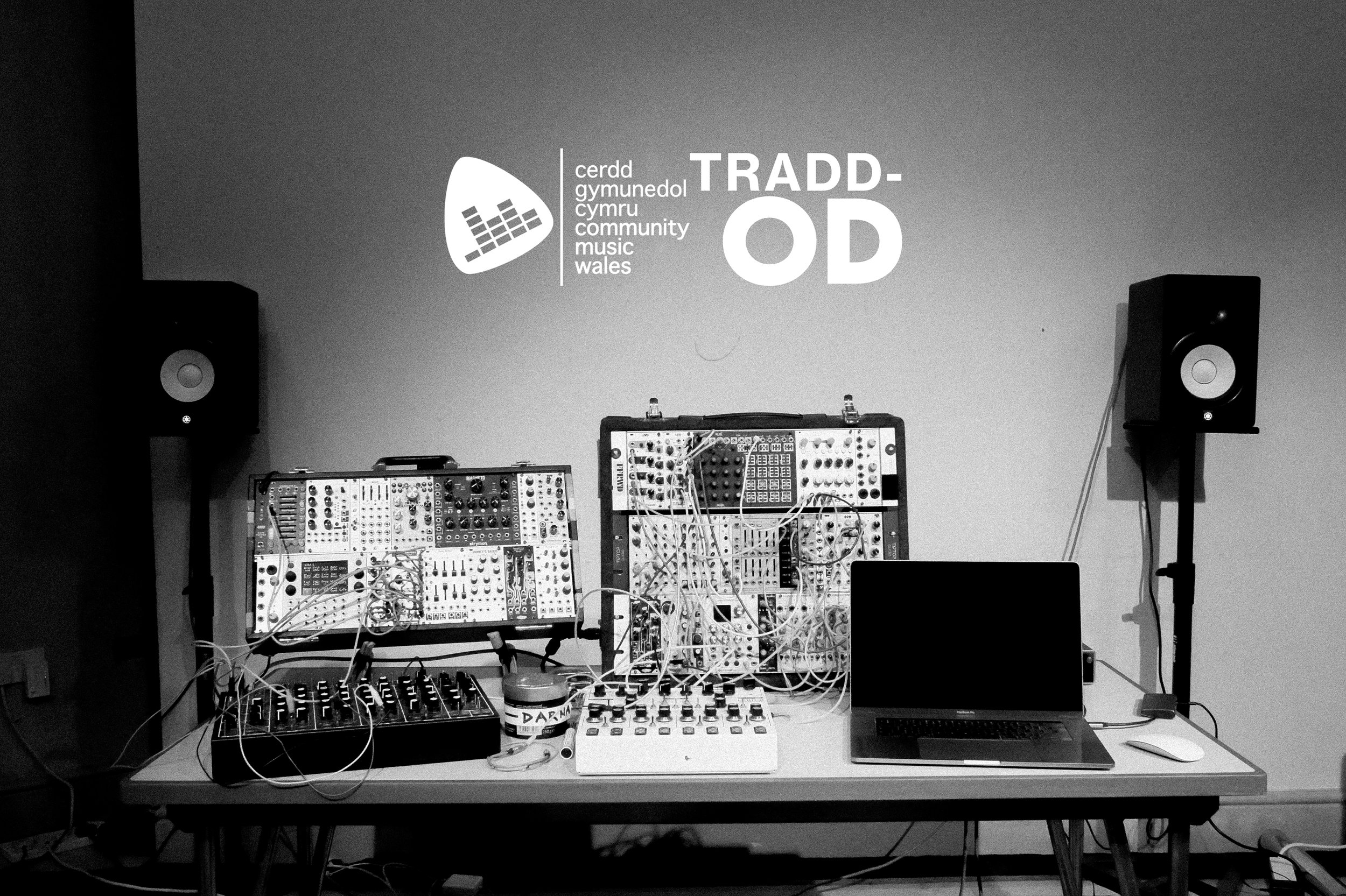
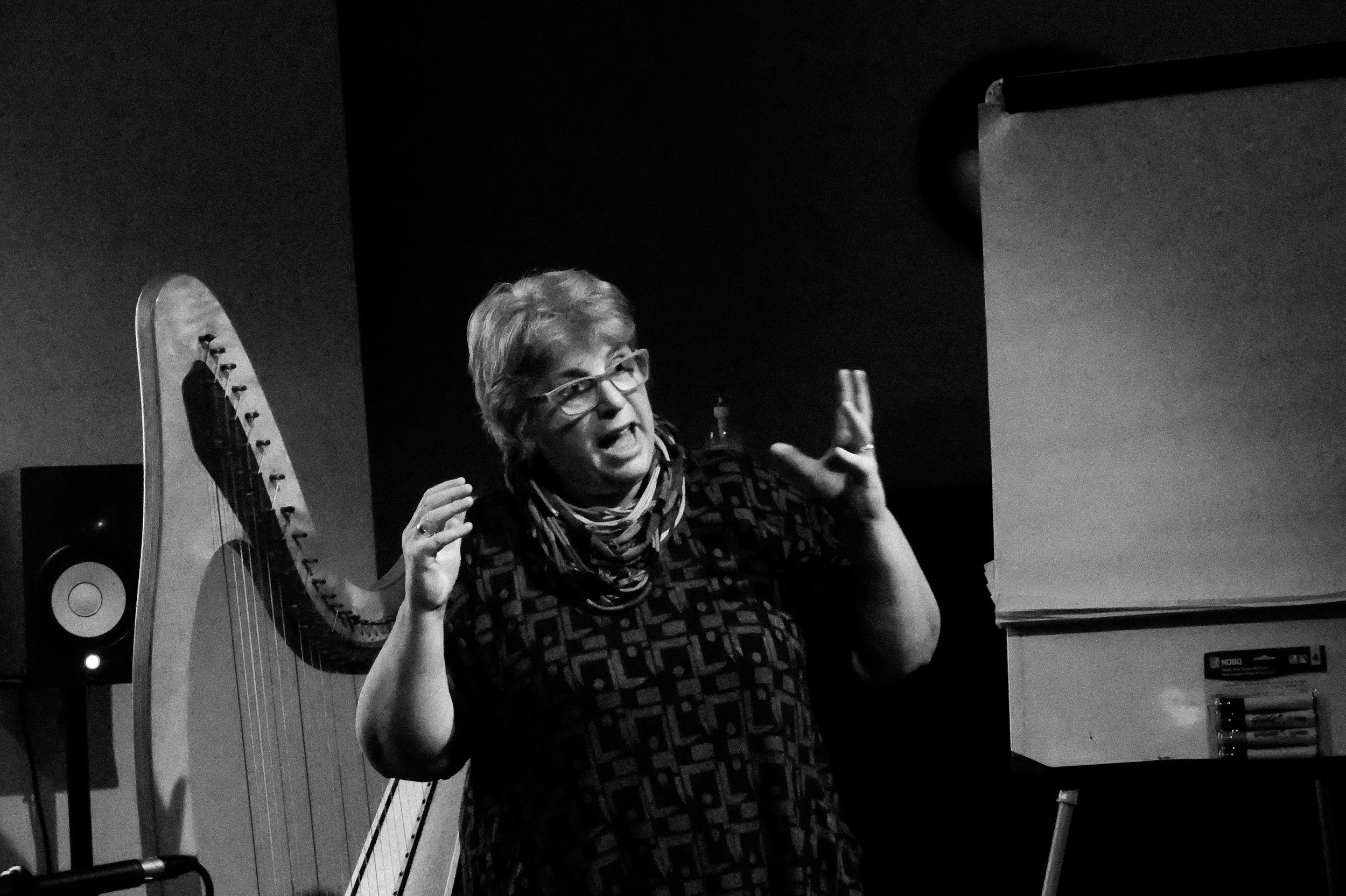
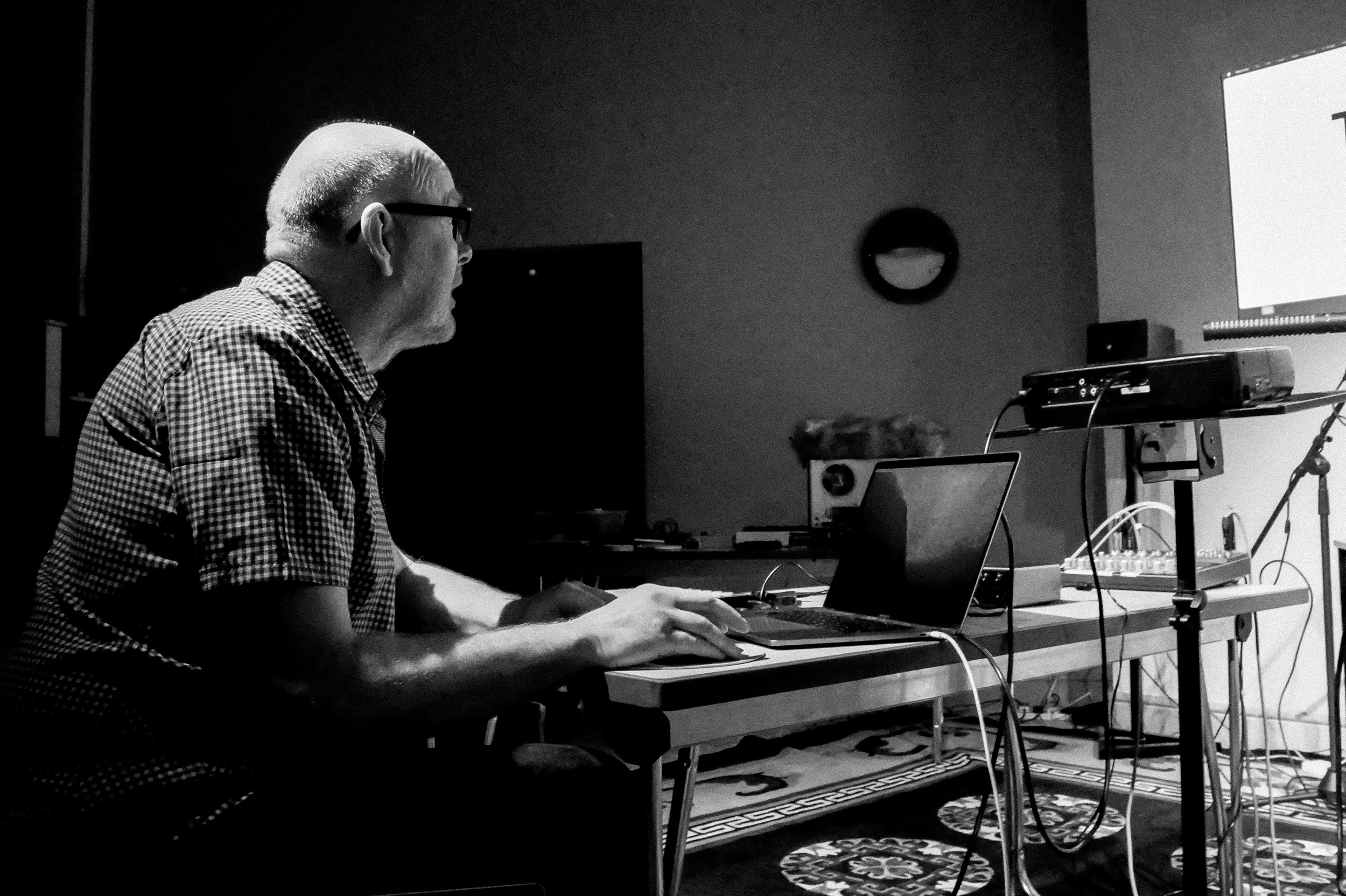
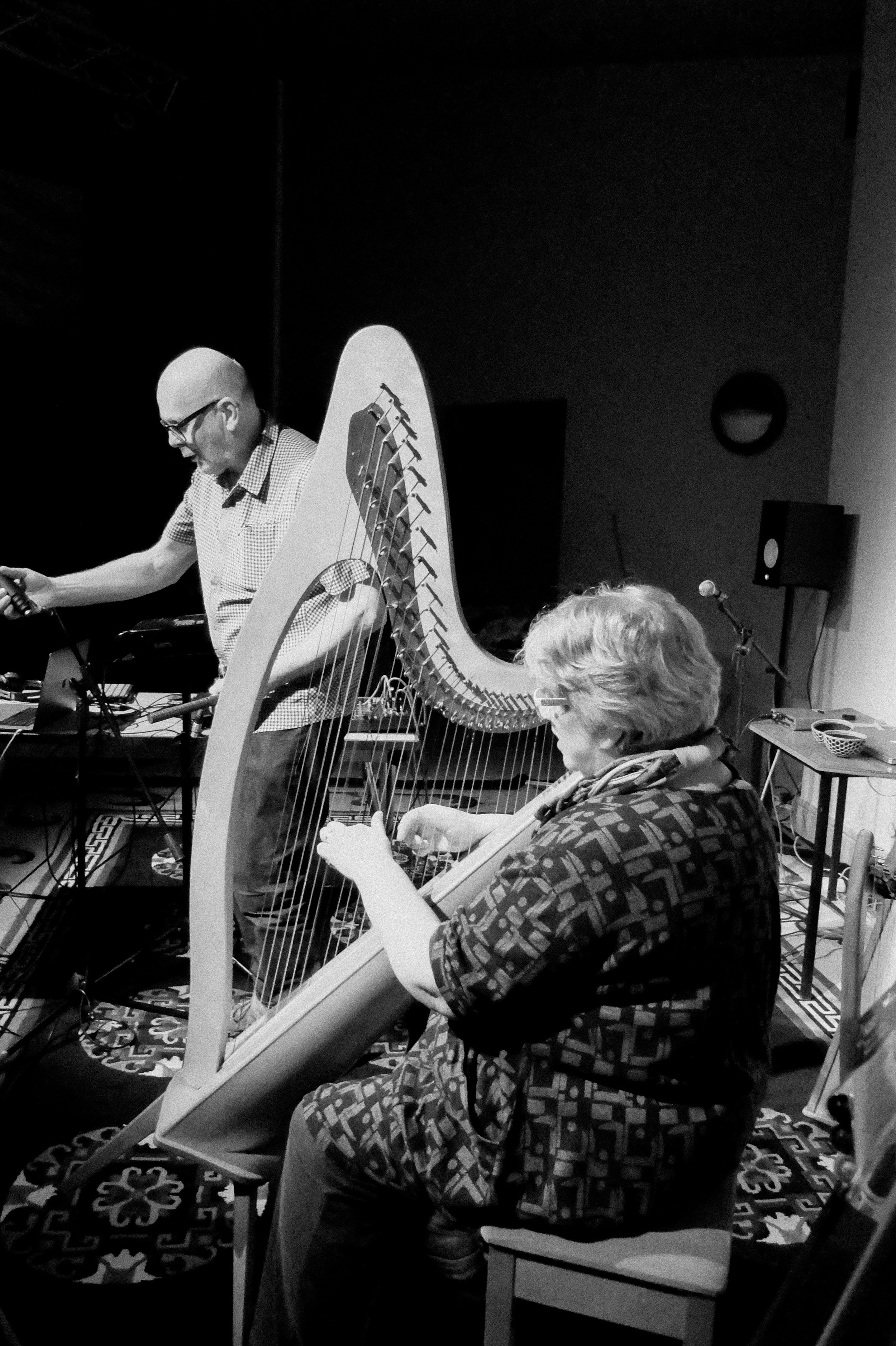
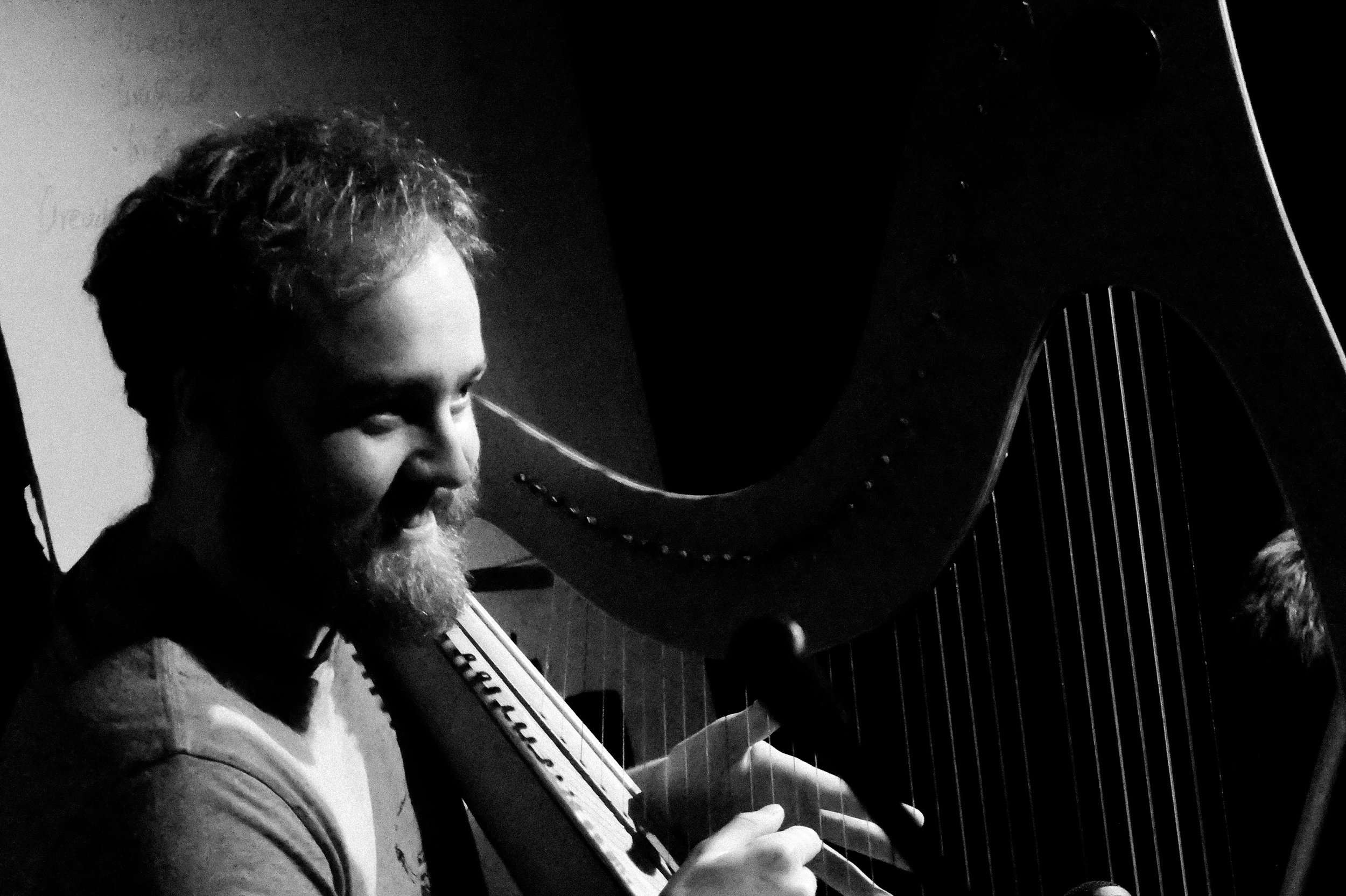
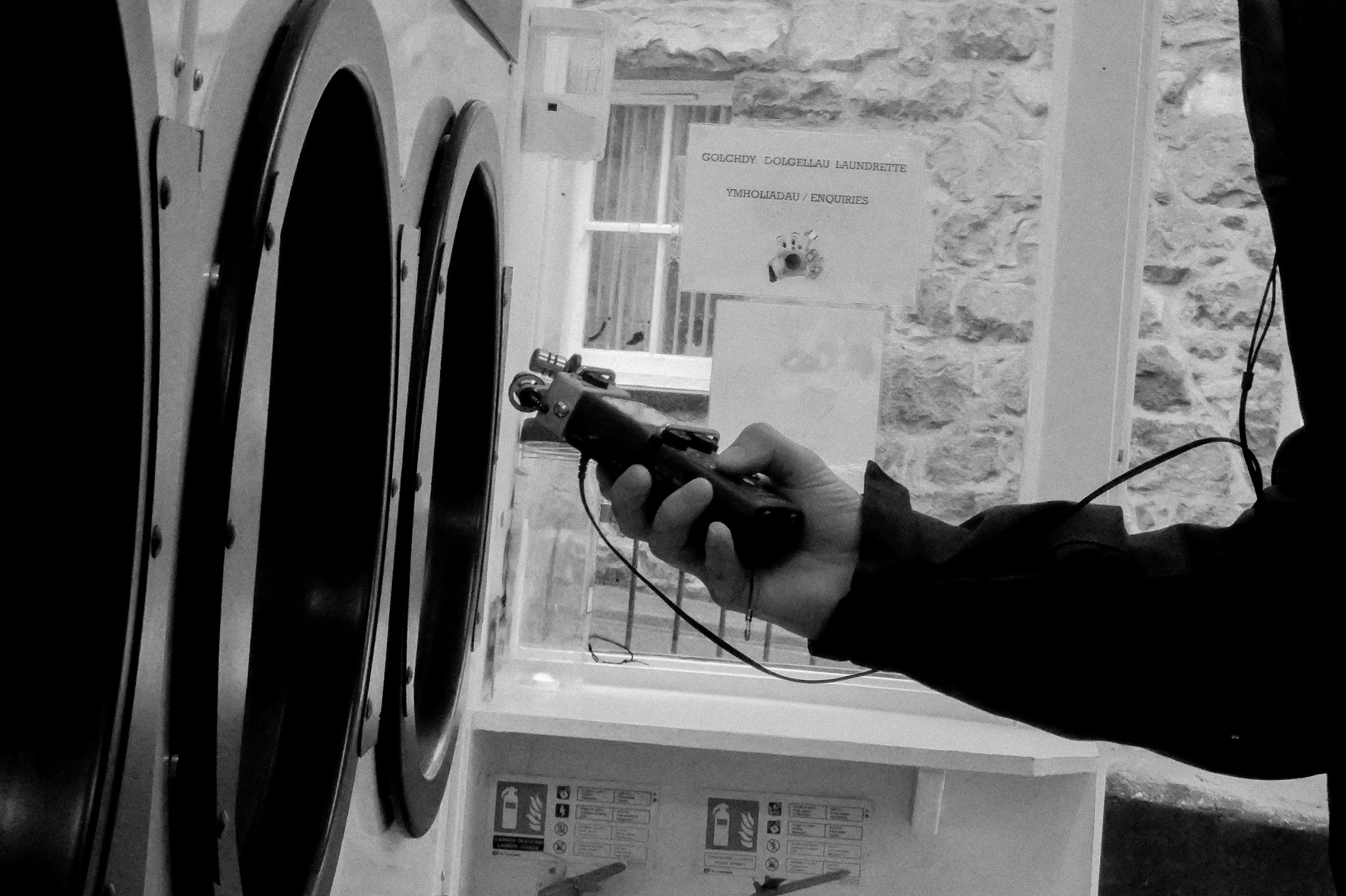
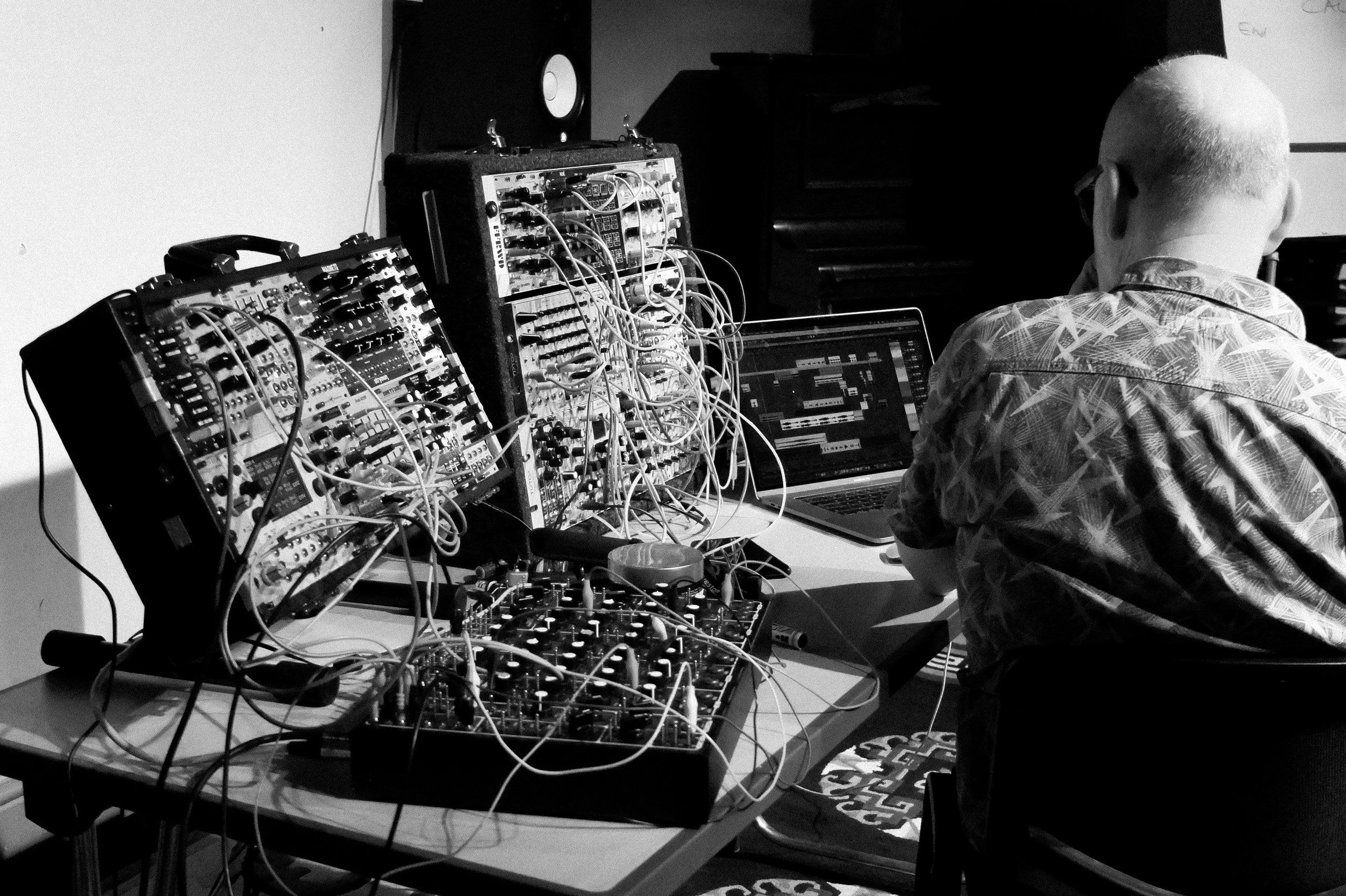
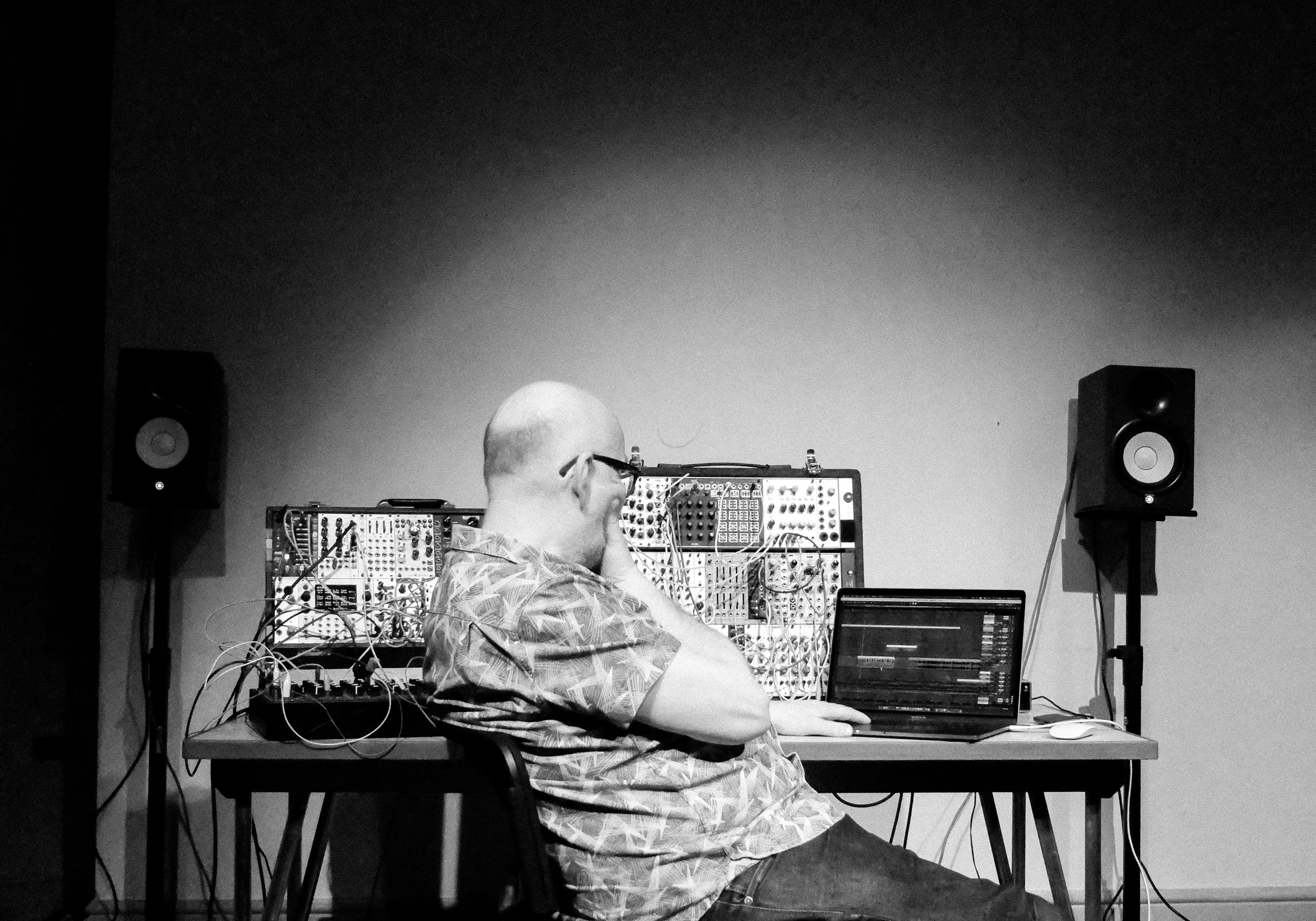
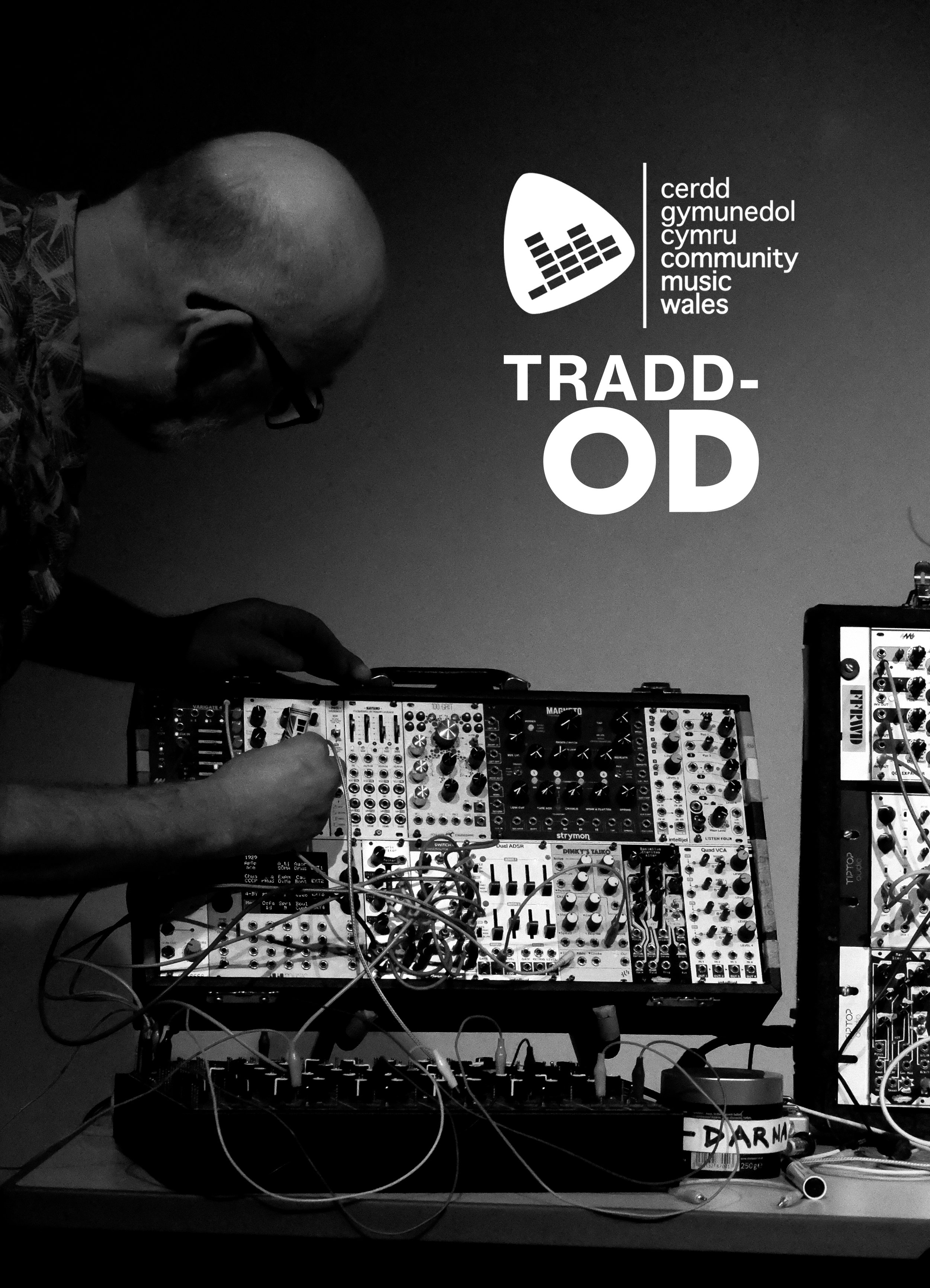
“....My advice would be to keep building a network of contacts, and not to burn any bridges - you never know who your next collaborator will be! .. Fy nghyngor i fyddai dal ati i adeiladu rhwydwaith o gysylltiadau, a pheidio â llosgi unrhyw bontydd – wyddoch chi fyth pwy fydd eich cydweithiwr nesaf!....”
